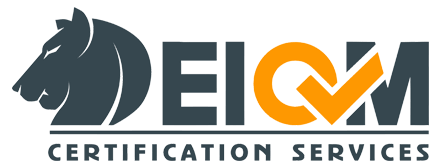Introduction
In today’s globalized world, ensuring the quality and reliability of products and services is paramount for businesses across various industries. One way to achieve this is through conformity assessment standards, such as ISO 17020. This article provides a comprehensive overview of This standard, covering its importance, scope, key requirements, accreditation process, benefits, challenges, case studies, and future trends.
Importance of Conformity Assessment Standards
Conformity assessment standards like ISO 17020 play a crucial role in facilitating international trade by providing assurance that products and services meet specified requirements. They also help enhance consumer confidence by ensuring that goods and services are safe, reliable, and of high quality.
Scope of ISO 17020
The scope of ISO 17020 covers various types of inspection activities, including product inspections, process inspections, and management system inspections. It applies to organizations performing inspections in fields such as manufacturing, construction, transportation, and healthcare.
Key Requirements of ISO 17020
The standard sets forth key requirements that inspection bodies must meet to demonstrate their competence and impartiality. These requirements include structural requirements, resource requirements, and process requirements.
Structural requirements pertain to the legal and organizational structure of the inspection body, as well as management responsibility, confidentiality, and impartiality. Resource requirements address the competence of personnel, facilities, equipment, and documented procedures. Process requirements focus on planning and conducting inspections, reporting and communication, and corrective actions.
Accreditation Process for ISO 17020
Implementing This standard involves several key steps, including:
- Gap Analysis: Assessing the organization’s current innovation management practices and identifying areas for improvement.
- Establishing Policies and Objectives: Defining policies, objectives, and targets related to innovation management.
- Resource Allocation: Allocating resources, such as funding, personnel, and technology, to support innovation initiatives.
- Training and Awareness: Providing training and raising awareness among employees about the importance of innovation and their role in the process.
- Monitoring and Measurement: Establishing metrics and performance indicators to track progress towards innovation goals.
Benefits of ISO 17020 Accreditation
Obtaining accreditation to This standard involves a rigorous process of assessment by accreditation bodies to ensure compliance with the standard’s requirements. Accreditation provides recognition of an inspection body’s competence and impartiality, enhancing its credibility and trustworthiness in the eyes of stakeholders.
Challenges in Implementing ISO 17020
Accredited inspection bodies enjoy several benefits, including increased market opportunities, improved efficiency, and effectiveness, and enhanced customer satisfaction. However, implementing ISO 17020 can pose challenges, such as resource constraints, the complexity of requirements, and resistance to change.
Conclusion
In conclusion, ISO 17020 is a vital tool for ensuring the competence and impartiality of inspection bodies involved in various industries. By adhering to its requirements and seeking accreditation, organizations can enhance their credibility, expand their market reach, and contribute to overall quality and safety assurance.

